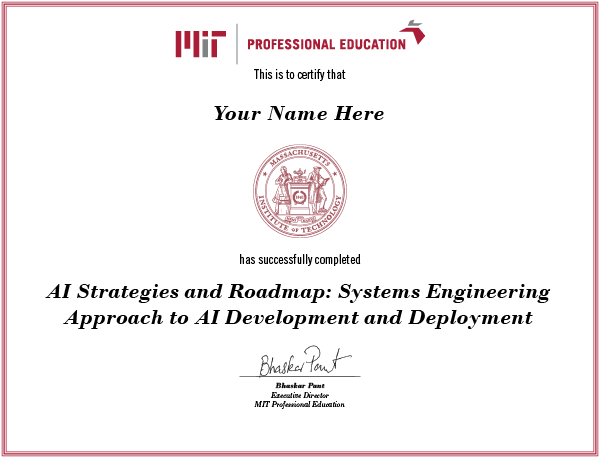Over five days, you will examine the trade-offs between roles best suited to humans vs. machines and develop the skills you need to lead and manage high-technology teams. Through interactive exercises and lectures, you will acquire practical experience building ML models using Jupyter Notebook, and master 10 principles for incorporating people, processes, and technologies in the successful deployment of AI products and/or services. You will also explore what makes GPUs and TPUs well-matched to executing machine learning algorithms. During our discussions, we will also address deployment of AI capabilities and delve into an AI ecosystem to successfully transition from development to deployment.
Unique to this course, we'll host AI practitioners to share their experiences, AI journey, and importance of taking a holistic approach to AI from architecture principles to deployment. We will include, in the lecture series, a short primer on Generative AI focusing on Large Language Models (LLMs).
AI continues to revolutionize many industries, including energy, consumer products and services, automotive, financial services, national security, healthcare, and advertising. But too often, business and IT leaders take a limited view of AI, focusing almost exclusively on machine learning (ML) methods. But AI technologies are, in fact, key enablers to complex systems. They require not only ML technologies, but also trustworthy data sensors and sources, appropriate data conditioning processes, responsible governance frameworks, and a balance between human and machine interactions. In short, organizations must evolve into a systems engineering mindset to optimize their AI investments.
This program will equip professionals to lead, develop, and deploy AI systems in responsible ways that augment human capabilities. Taking a broader, holistic perspective, it emphasizes an AI system architecture approach applied to products and services and provides techniques for transitioning from development into operations. To get the most of your AI initiatives, you must consider the entire ecosystem surrounding your AI systems, and then recruit and retain talented multi-disciplinary teams to be successful.
Upon completion of this program, you will have the skills to understand the AI fundamentals necessary to develop end-to-end systems, lead AI teams, and successfully deploy AI capabilities.
Participants are encouraged to purchase the electronic publication of our book titled - Artificial Intelligence: A Systems Approach from Architecture Principles to Deployment published by the MIT Press. The course lectures are based on the content of the AI book.
NOTE: This is not a programming course. While coding is touched on, it is not a significant component of the curriculum.
Certificate of Completion from MIT Professional Education







